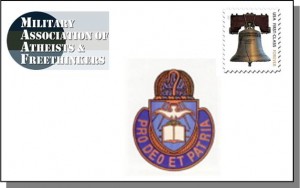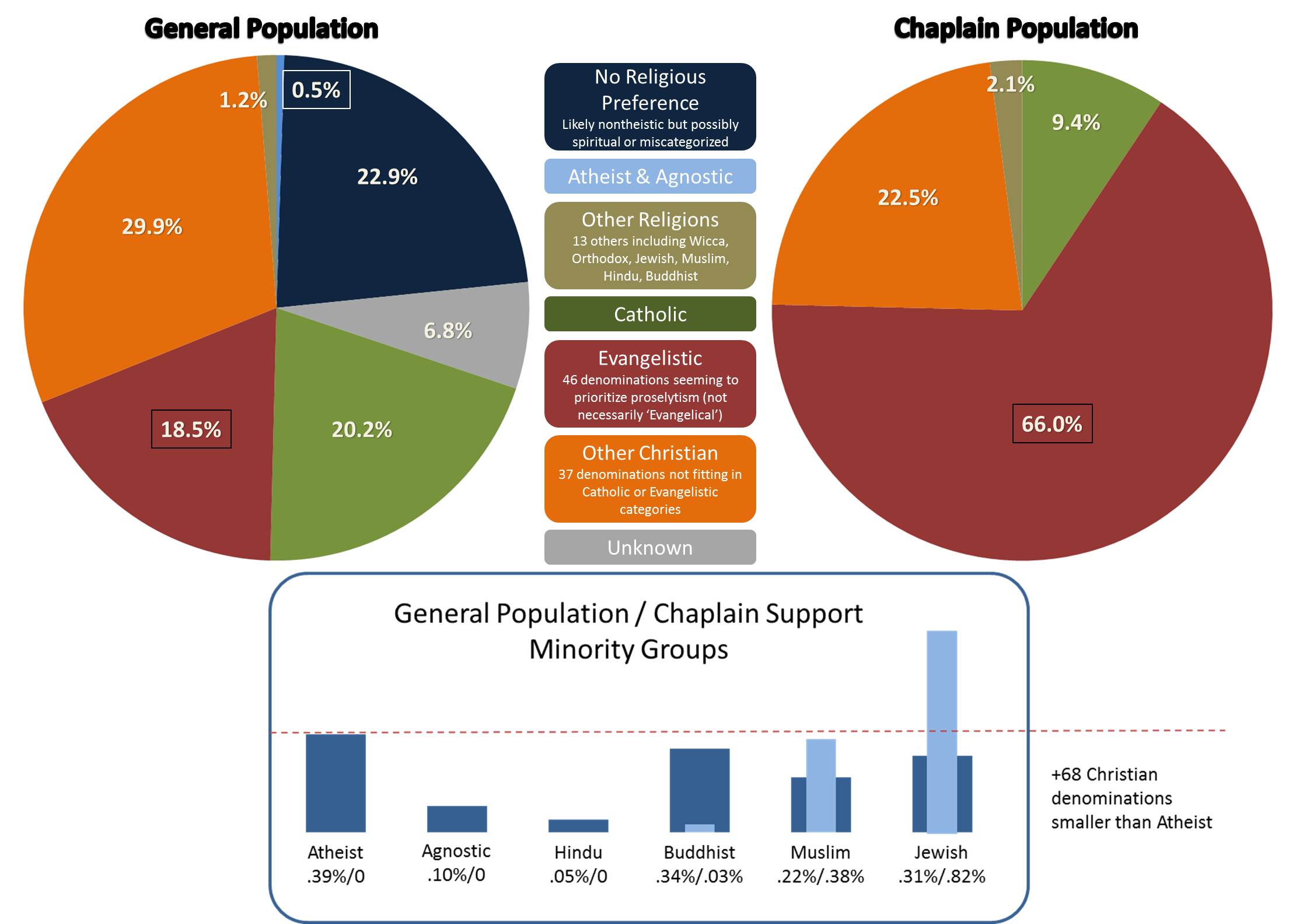Open Letter to Chaplains from Foxhole Atheists
 This is a second open letter that follows up on a first letter and continuing outreach to military leaders and chaplain endorsers from atheists, humanists, and other nontheists. The intent is the same – to speed support and services to military personnel in need. The original letter (excerpts repeated here in italics) was posted in June and was addressed primarily to Military Chaplain Endorsers. The Coalition of Spirit-Filled Churches, Alliance of Baptists, Unitarian Universalist Alliance, Sacred Well Congregation (Wiccan), and Interfaith Alliance have bravely signed on to our Minimum Statement of Support. The first letter asked for support, which we still need, but this letter offers support and is addressed to individual chaplains.
This is a second open letter that follows up on a first letter and continuing outreach to military leaders and chaplain endorsers from atheists, humanists, and other nontheists. The intent is the same – to speed support and services to military personnel in need. The original letter (excerpts repeated here in italics) was posted in June and was addressed primarily to Military Chaplain Endorsers. The Coalition of Spirit-Filled Churches, Alliance of Baptists, Unitarian Universalist Alliance, Sacred Well Congregation (Wiccan), and Interfaith Alliance have bravely signed on to our Minimum Statement of Support. The first letter asked for support, which we still need, but this letter offers support and is addressed to individual chaplains.
Endorsers and related agencies oversee and direct chaplains who interact with atheists and humanists daily. They are expected to advocate for us within their roles as command staff members. Every day, chaplains advise about the needs of all service members, to include nontheists, in their direction of policy and preparation of command training and briefings (suicide, deployment, etc). Chaplains are provided resources such as facilities, materials, and advertising that are valuable in helping military personnel to grow in their personal world view and values and to connect to a supportive community of like-minded individuals. We as atheists and humanists are reaching out to help military chaplains to better understand nontheists in uniform.
As representatives of the atheists, humanists, freethinkers, skeptics, and other nontheists, MAAF requests chaplains take the following actions:
- Place our brochure “Living Well Through Secular Humanism” on your shelves and in your deployment kits.
- Send emails to your unit and announce in unit formations that you are welcoming to atheists and humanists and that you have references and materials for atheists and humanists.
- Contact MAAF for questions and study references to better understand nontheistic philosophies and personnel.
- Utilize MAAF to resolve the concerns expressed by atheists and humanists within the command.
- Work with MAAF to certify lay leaders (including DFGL/SRP) to help in your chaplain programs.
- Talk to your fellow chaplains to help expand the understanding and acceptance of atheists.
- Talk to your endorser about signing the MAAF Minimum Statement of Support and disseminating this letter to your fellow chaplains.
Even among our community, some are surprised that nontheists would seek out or even could benefit from support by chaplains. Only with the help of chaplains can this divide be resolved. The chaplaincy is trained, resourced, and commissioned to support everyone in the unit. The steps above will ensure that chaplains can support humanists on humanist terms. The intent of these requests is to encourage chaplains to use MAAF as religious support agencies are used. Some of what I provide will sound like ‘proselytism’ as I’m asking you to learn about atheist and humanist beliefs, but this is no different than the need to learn about Jews, Muslims, and others in your unit. Support inclusive of the nontheist community brings the chaplaincy more in line with the modern demographics in the military and the modern requirements of the chaplaincy.
For most of the same reasons theistic personnel benefit from chaplain support, atheists and humanists will benefit. For every reason the military as a whole benefits from the chaplaincy, the military will benefit from a chaplaincy that provides full and equal support to atheists and humanists. The origin of the chaplaincy lies in Christian ministry in 1775 with the Revolutionary Army, before the Constitution and the 1st Amendment. Today’s military is split among over 100 religious preferences, with less than 70% professing Christianity and less than 50% professing Protestant Christianity. The chaplaincy has recognized this plethora of religious diversity with Muslim, Buddhist, and Hindu Chaplains, and has a stated commitment to diversity in the ranks, at least for the theistic community.
All religious preferences deserve chaplain support, and humanists are one of the largest demographics within the pluralistic military community. A survey by the Defense Equal Opportunity Management Institute showed Humanists (3.61%) are behind Catholics, Baptists, and Methodists. Humanists were listed ahead of all non-Christian denominations and the majority of Christian denominations. These survey results are consistent with other Department of Defense data showing atheists ahead of Hindus, Buddhists, Muslims, Jews, and others. It is in the best interest of chaplains and the military to better serve the sizable nontheist community.
There will be endorsers and individual chaplains that see the role of the military chaplain as purely related to a monotheistic god or supernatural beliefs. This exclusively theistic viewpoint is simply not reflective of the diversity of support required within the modern military. Chaplains are given responsibility for morale-building, religious accommodation for all, ethical advice to the command, and a plethora of counseling responsibilities including deployment, family, and finances. It is impossible to avoid chaplains and chaplain influence, so chaplains must be willing and able to serve all service members. Restricting chaplain support based on belief would call into question the relevance and Constitutionality of secular services from chaplains.

